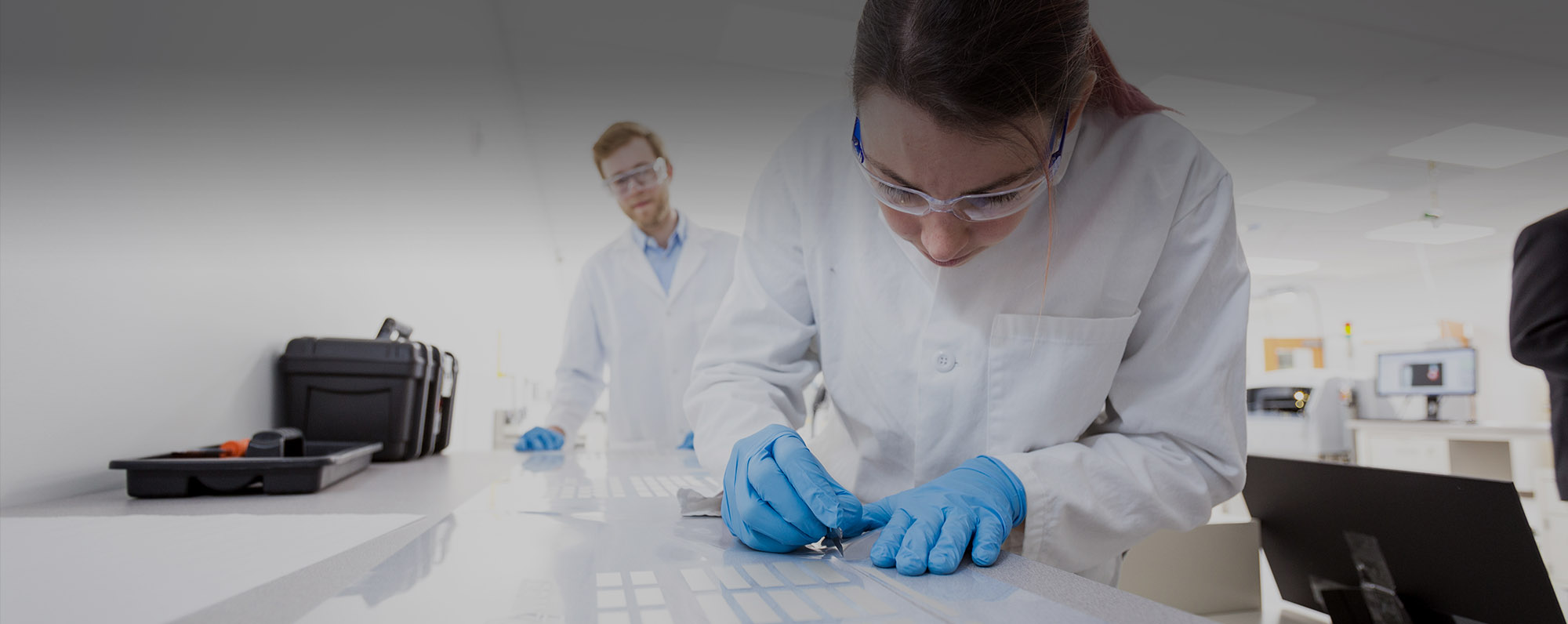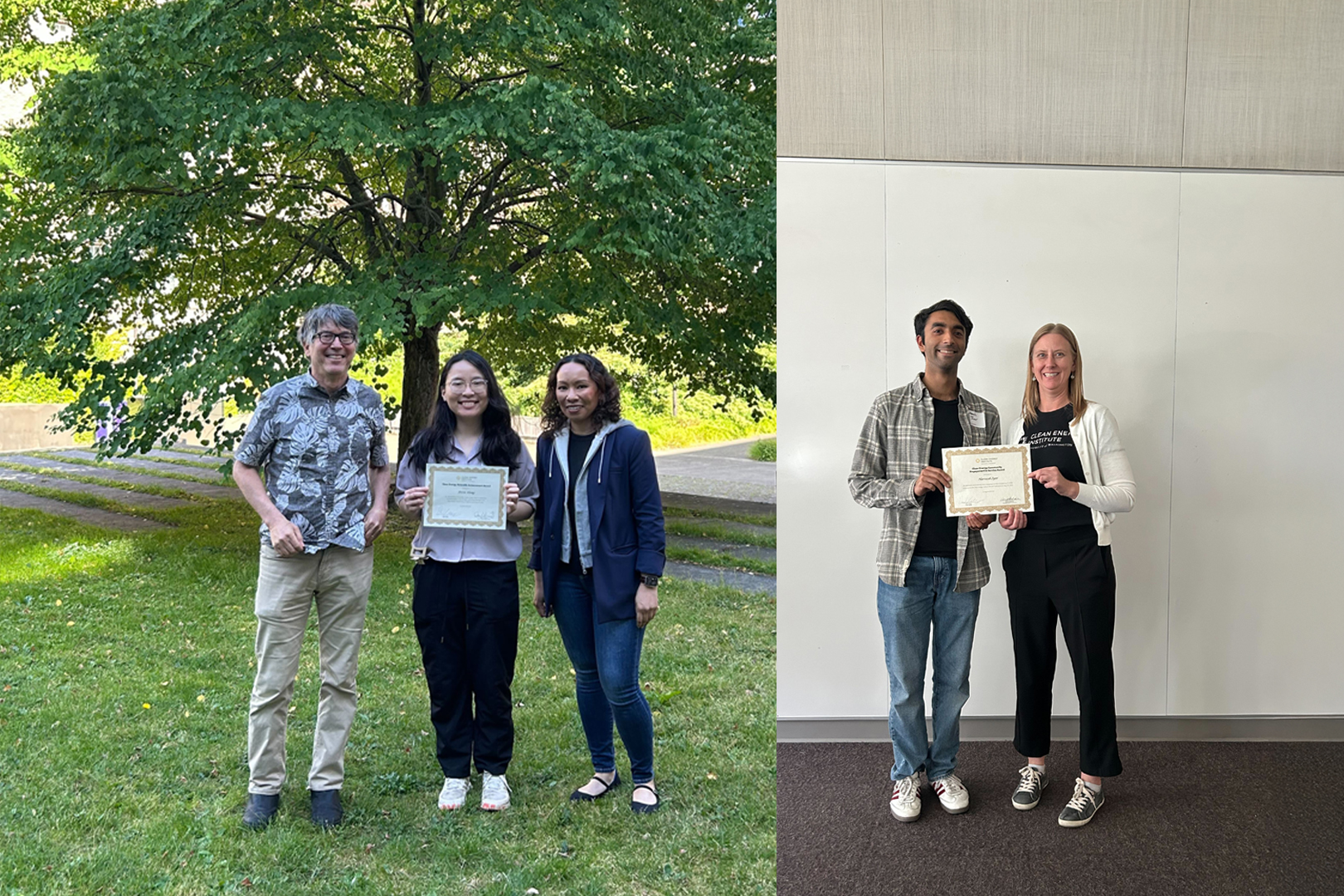
June 16, 2025
University of Washington (UW) graduate students Doris Hung and Hareesh Iyer received the UW Clean Energy Institute’s (CEI’s) 2025 Clean Energy Student Achievement Awards at its annual end-of-year seminar on May 29.
Scientific Achievement
The Clean Energy Scientific Achievement Award recognizes UW graduate students who have demonstrated extraordinary productivity in clean energy research and scholarship, and have contributed meaningfully to the scientific community.
Chih-Hsuan “Doris” Hung
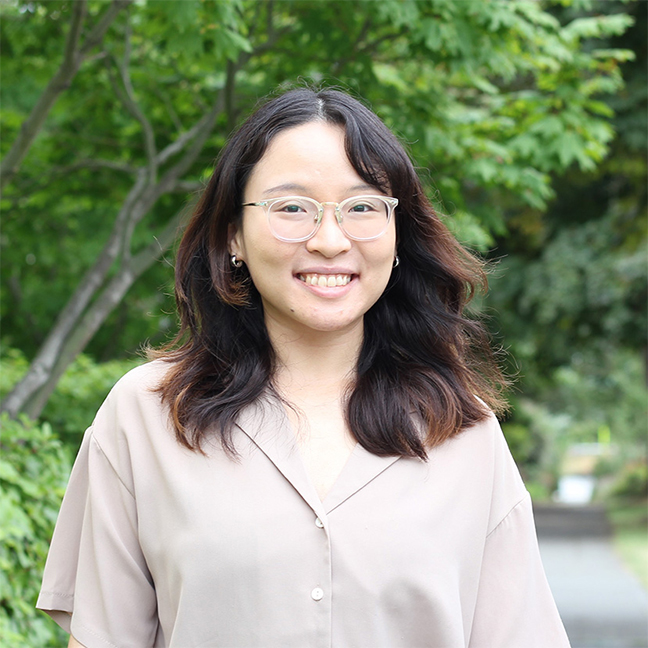
Doris Hung, a mechanical engineering (ME) doctoral student advised by Professor Corie L. Cobb and a CEI Graduate Fellow, received the 2024–25 Clean Energy Scientific Achievement Award. She was honored for developing new computational modeling tools and data analysis approaches for the design of lithium-ion battery (LIB) electrodes with three-dimensional (3D) architectures — a promising technology for low-cost and long-range electric vehicles (EVs).
“The resources provided by CEI, including the CEI Graduate Fellowship, [data science] training, and Education & Training Fellowship, really helped me grow as a researcher,” Hung said. “I am very grateful to be part of this community.”
Hung’s work has focused on the design and modeling of 3D LIBs. Specifically, 3D LIBs overcome a fundamental trade-off between energy density and power density in conventional LIBs manufactured with monolithic planar electrodes. For a given amount of electrode material, more surface area allows ions to move more freely — increasing a battery’s power density, or how much energy it can discharge at a time relative to its size. Compared to a simple LIB with a positive and negative half, an LIB made by stacking thin electrode sheets (alternating between cathode and anode) has more power. But every additional electrode layer also requires another separator and current collector, adding more weight and volume to the battery without storing more electrons — decreasing its energy density. A 3D LIB architecture such as a zipper-like “interdigitated” structure can offer the best of both worlds: more electrode surface area to deliver a power boost without requiring a lot more inactive material.
As part of her graduate research, Doris Hung simulated the concentration of lithium ions in batteries with planar (left) and interdigitated (right) electrode architectures.
Hung used continuum-scale electrochemical models to investigate how 3D electrode architectures affect charge transport and kinetics within a battery cell, as well as overall LIB performance. In 2023, she was honored by the Pacific Northwest Section of the Electrochemical Society with their Electrochemistry Student Award for her contributions in research and in K–12 education. She will complete her ME Ph.D. in Spring 2025, and will start a postdoctoral research position at Oak Ridge National Laboratory this fall, building on 2023 and 2024 internships and continuing to work with her Ph.D. co-mentor and thesis committee member, Dr. Srikanth Allu.
“Doris’ computational research is an integral part of my lab,” said Cobb, the Washington Research Foundation Innovation Professor of Clean Energy and Mechanical Engineering. “Her research has helped identify key variables that affect the performance of structured battery electrodes relative to conventional battery electrodes made from the same material. Her lead author publications range from analyzing 3D LIBs made over the last 20 years to defining new computational metrics for evaluating 3D LIBs and examining the performance advantages of structured LIB electrodes for electric vehicles. Doris has been a productive mentor to other undergraduate and graduate students in my lab and demonstrated leadership as a teaching assistant and CEI Education & Training Fellow. She has a bright career ahead as a computational engineer and scientist.”
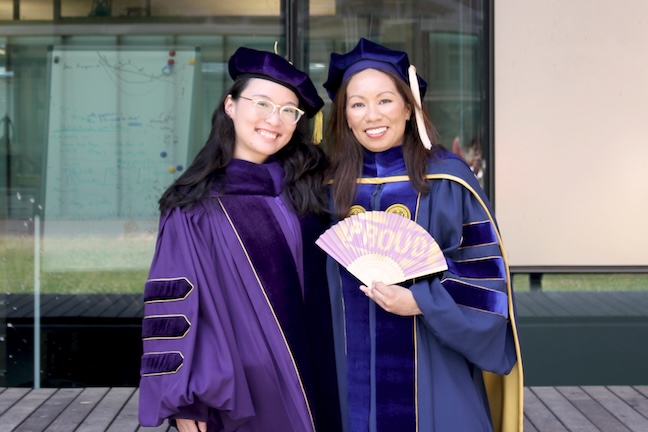
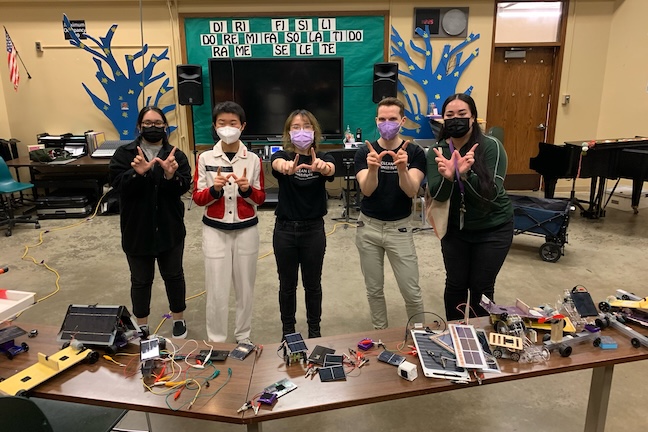
Community Engagement & Service
The Clean Energy Community Engagement & Service Award recognizes graduate students who have demonstrated dedication and creativity when engaging a variety of audiences in STEM. This award is decided by CEI staff who work closely with CEI graduate students participating in public engagement in all settings, from classrooms to community centers.
Hareesh Iyer
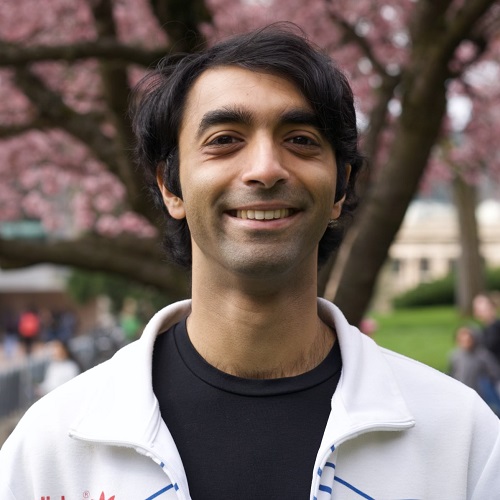
CEI Graduate Fellow Hareesh Iyer, a doctoral student in materials science & engineering (MSE) advised by Professor Eleftheria Roumeli, received the 2025 Clean Energy Community Engagement & Service Award.
“I’m grateful to CEI for providing so many opportunities for me to connect with various communities around the Puget Sound,” said Iyer, who served as a CEI Education & Training Fellow (ETF) during the 2023–24 academic year. “It meant a lot to me to be able to engage with students, teachers, and community leaders and learn about the different ways people are thinking about sustainability!”
“We’re delighted to recognize Hareesh for his continued dedication to K–12 engagement,” said CEI Associate Director of Education & Workforce Engagement Danica Hendrickson. “Last year, Hareesh helped engage over 4,500 students in STEM as one of CEI’s Education & Training Fellows. And I’m particularly proud of how he followed up on our idea for a new Science Olympiad event focused on energy storage — he helped make it happen this year by writing four tests about batteries! He also participated in three outreach events, stepping in at the last minute when we needed more volunteers.”
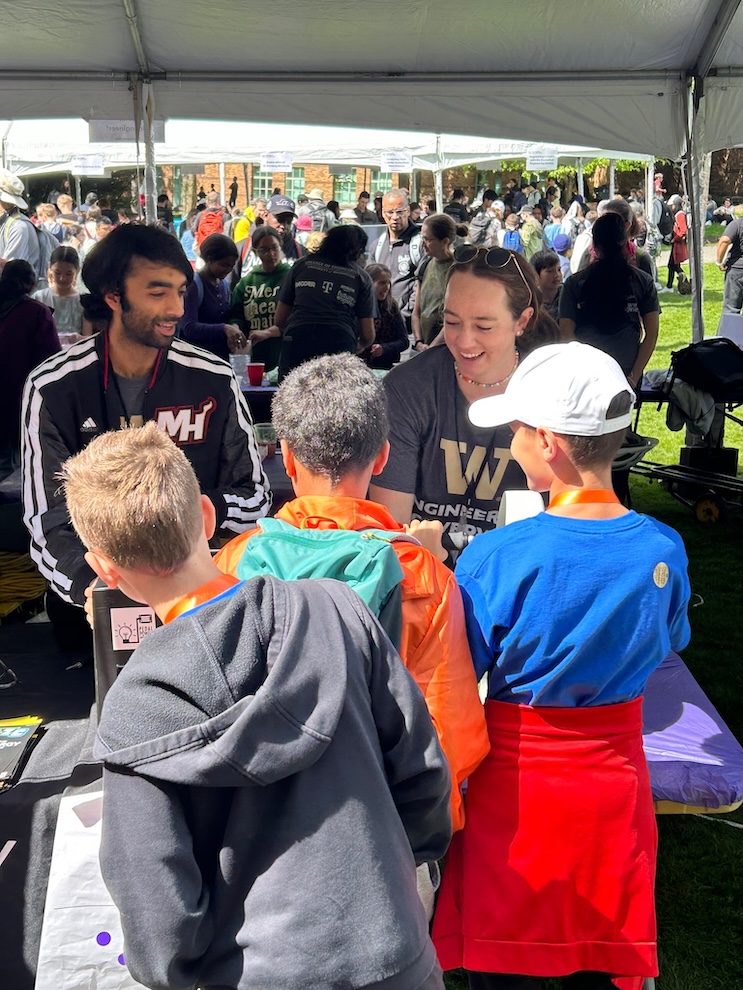
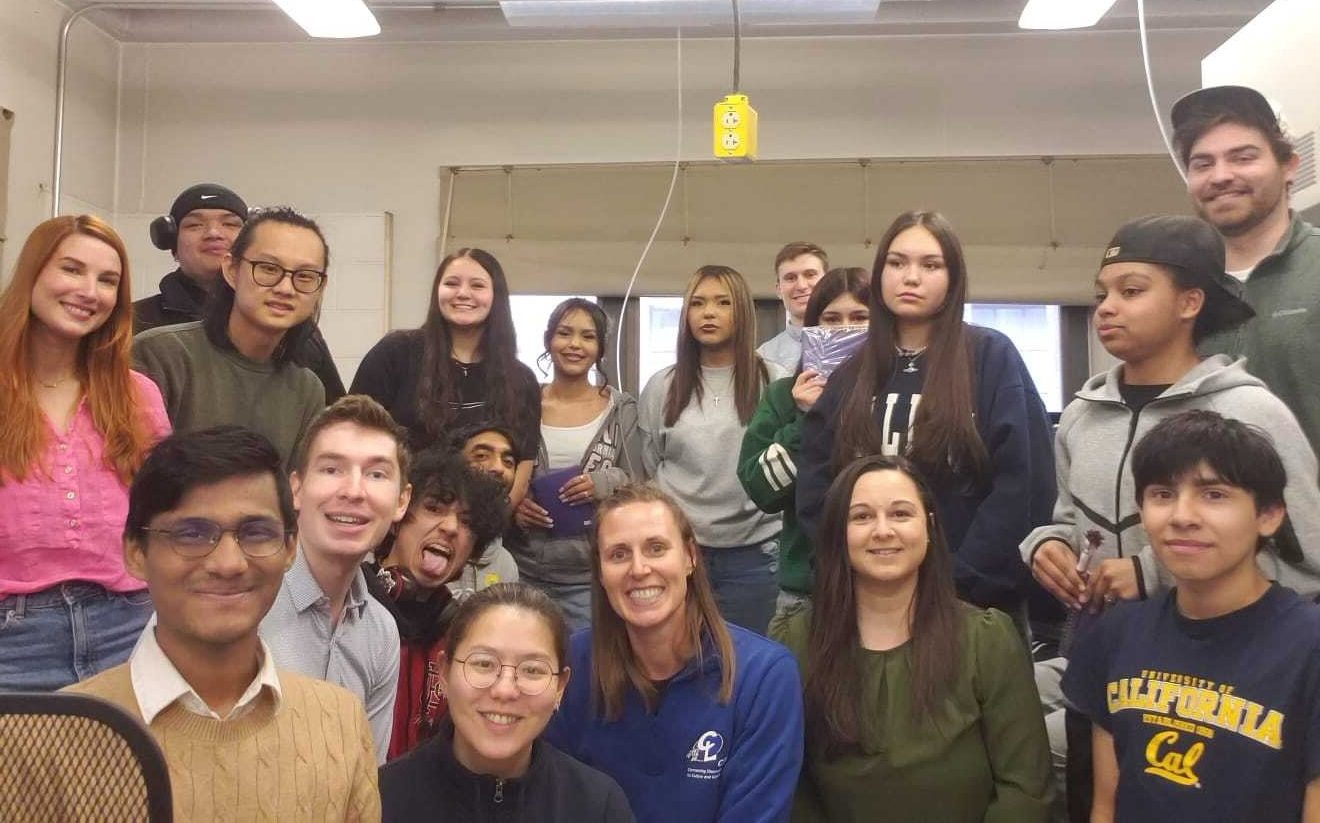
Nominations for the 2025–26 Clean Energy Student Scientific Achievement Award will open in spring 2026. UW students who are interested in K–12 STEM engagement can become Clean Energy Ambassadors by emailing cei-outreach@uw.edu.



